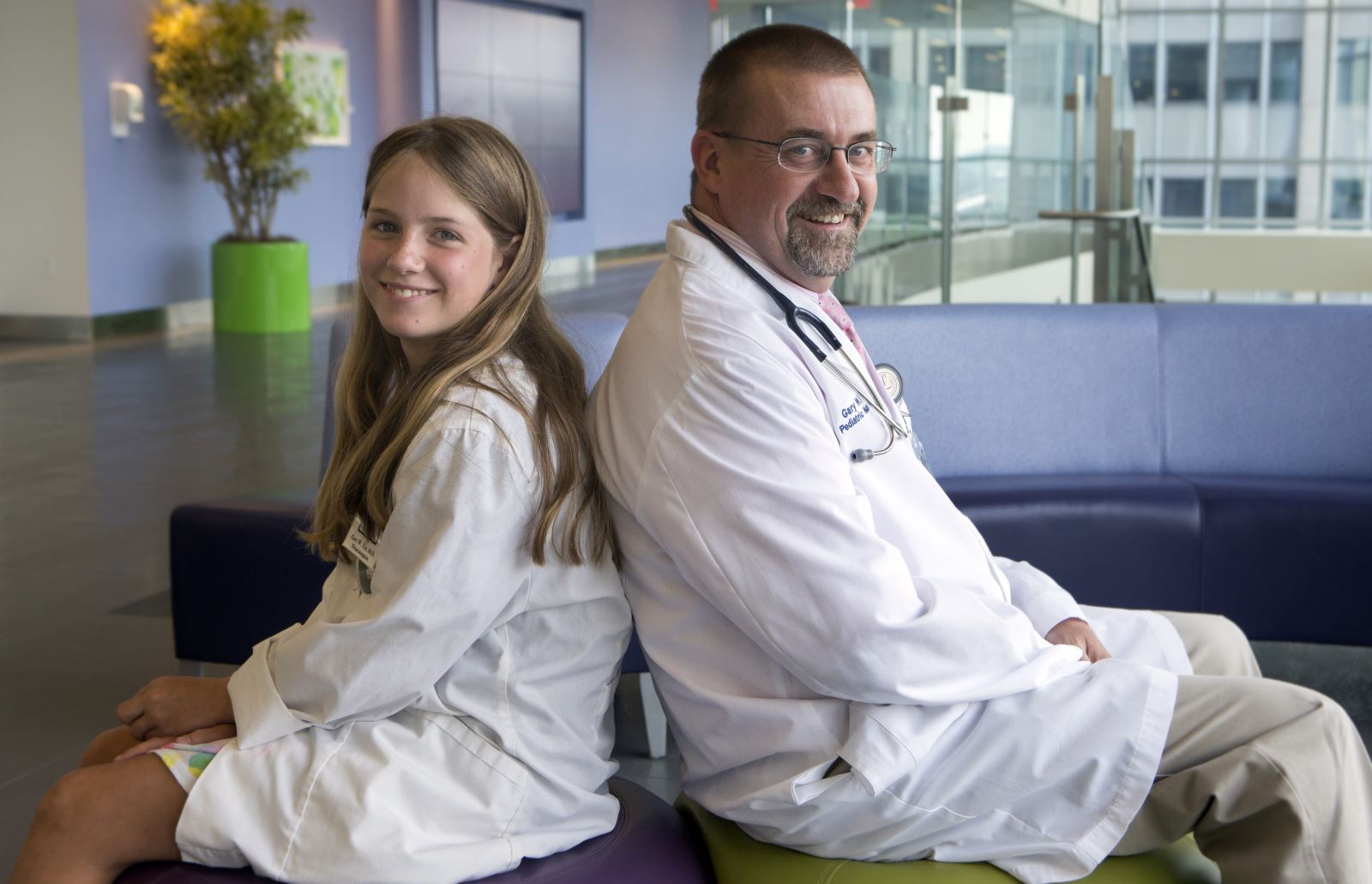Neurosurgery
Compassionate experts in pediatric neurosurgery
Operating on a child's brain is one of the most delicate procedures in medicine. Neurosurgery focuses also on issues in the spine or peripheral nerves that require surgery while a child's brain is still developing. Our team might operate on children before birth, immediately after birth, during infancy, childhood and adolescence - and we even treat patients as adults, if their condition continues to persist.
Children who require the care of a neurosurgeon often come to us with other medical conditions, meaning they already are receiving other care, or require postsurgical assistance. That's why we developed the Neurosciences Center, which brings together all the specialized services your child needs. We make it easier for you to navigate to get the right care for your child from the moment they arrive.

Highly specialized care for your family
Because of the highly specialized nature of what we do, our pediatric neurosurgeons have completed significant additional training and certification. In fact, of the only 200 board-certified pediatric neurosurgeons in the country, four practice right here at CHoR.
Pediatric neurosurgery has evolved as an extension of general neurosurgery because a child's developing nervous system is not merely a miniature version of an adult's. The conditions and diseases seen in children also are considerably different from those seen in adults.
Conditions our neurosurgeons treat
Our team cares for patients with:
- Brain tumors
- Cerebral cysts
- Cerebral palsy
- Chiari malformation
- Craniofacial conditions
- Craniosynostosis
- Hydrocephalus
- Seizures that are uncontrollable
- Spina bifida
- Spinal lipoma
- Spinal tumors
- Syringomyelia
- Tethered spinal cord
- Trauma to nerves or plexus
- Traumatic brain injury
- Traumatic spinal injury
- Vascular malformations
Minimally invasive neurosurgical techniques
We are innovators in the use of minimally invasive techniques, which can deliver targeted outcomes with reduced recovery times. These techniques include:
- Minimally invasive craniosynostosis surgery
- Surgical management (selective dorsal rhizotomy) of spastic diplegic and quadriplegic patients
- Endoscopic surgeries to cure hydrocephalus without shunts
- Endoscopic brain tumor surgery
- Minimally invasive interstitial laser ablation for tumors and seizures
- Narrow corridor interfascicular subcortical surgical techniques
- ROSA robotic epilepsy surgery and electrode placement






